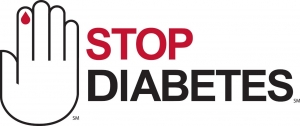Join us during American Heart Health Month as we put in time and effort to care for our hearts. Follow the Heart Truth’s “28-Days to a Healthy Heart” Challenge yourself every day of the month of February to do more for your heart! When we make an effort to care for our heart, we will definitely reap the benefits.
August Is…
Animal Health Month
During this month we will think about what we can do to help our own pets, along with other animals in shelters! Among cat owners, almost 50 percent did not take their cats to a veterinarian during 2011. Just like humans need yearly checkups and screenings, it is important that our animals go to the vet for checkups!
December is International Safe Toys and Gifts Awareness Month! In 2015, U.S. emergency rooms treated over 250,000 toy-related injuries. To help promote Toy Safety Awareness, we will once again be participating in Toys for Tots!
February is American Heart Health Month! The heart needs a lot of help in order to stay strong and healthy, but it’s easy for you to make some daily changes that will keep your heart ticking!
Join us during American Heart Health Month as we put in the time and effort to care for our hearts. This month we will be challenging ourselves to complete “28-Days to a Healthy Heart,” inspired by The Heart Truth.
Heart disease is the leading cause of death among both men and women. Also, one in every three adults in the United States has high blood pressure, which can not only damage your heart, but also your arteries, brain, and kidneys. Put yourself to the test every day in the month of February to do more for your heart.
Download the attached “28-Days to a Healthy Heart” Calendar to keep track of your daily heart-healthy tasks!
Be sure to follow us as we take part in this month-long challenge: we will be sharing our progress on our Instagram (@thealphagroupincma) and Facebook pages. Feel free to share your progress using #alphacares and #myheart28 !
When we make an effort to care for our heart, we will definitely reap the benefits!
February Is…
American Hearth Health Month
February is American Heart Health Month! The heart needs a lot of help in order to stay strong and healthy, but it’s easy for you to make some daily changes that will keep your heart ticking! Heart disease is the leading cause of death among both men and women. Also one in every three adults in the United States has high blood pressure, which not only can damage your heart, but also your arteries, brain, and kidneys.
Join us during American Heart Health Month as we put in time and effort to care for our hearts. Follow the Heart Truth’s “28-Days to a Healthy Heart” Challenge yourself every day of the month of February to do more for your heart! When we make an effort to care for our heart, we will definitely reap the benefits.
Please take the time to learn more about what you can do for your heart! Feel free to visit a Walgreens or CVS Pharmacy in order to receive a free blood pressure screening. Learn your numbers so you can get your healthy heart back!!
Good vs. Bad Carbohydrates
Carbohydrates are an important part of your diet, but that doesn't mean you're free to load up on cakes and cookies to get your daily amount. Here, we explain the difference between good and bad carbohydrates.
By Diana Rodriguez
Medically Reviewed by Lindsey Marcellin, MD, MPH
Carbohydrates are an important part of a healthy diet, but there's much discussion about the good and bad carbohydrates.
So how do you know which is which? The answer is both simple — and complex.
Good vs. Bad Carbohydrates
Carbohydrates, often referred to as “carbs,” are your body's primary energy source, and they're a crucial part of any healthy diet. Carbs should never be avoided, but it is important to understand that not all carbs are alike.
Carbohydrates can be either simple (nicknamed "bad") or complex (nicknamed "good") based on their chemical makeup and what your body does with them.
Complex carbohydrates, like whole grains and legumes, contain longer chains of sugar molecules; these usually take more time for the body to break down and use. This, in turn, provides you with a more even amount of energy, according to Sandra Meyerowitz, MPH, RD, a nutritionist and owner of Nutrition Works in Louisville, Ky.
Simple carbohydrates are composed of simple-to-digest, basic sugars with little real value for your body. The higher in sugar and lower in fiber, the worse the carbohydrate is for you — remember those leading indicators when trying to figure out if a carbohydrate is good or bad.
Fruits and vegetables are actually simple carbohydrates — still composed of basic sugars, although they are drastically different from other foods in the category, like cookies and cakes. The fiber in fruits and vegetables changes the way that the body processes their sugars and slows down their digestion, making them a bit more like complex carbohydrates.
Simple carbohydrates to limit in your diet include:
Soda
Candy
Artificial syrups
Sugar
White rice, white bread, and white pasta
Potatoes (which are technically a complex carb, but act more like simple carbs in the body)
Pastries and desserts
Meyerowitz says that you can enjoy simple carbohydrates on occasion, you just don't want them to be your primary sources of carbs. And within the simple carb category, there are better choices — a baked potato, white rice, and regular pasta — than others — chips, cakes, pies, and cookies.
The Detail on Complex Carbohydrates
Complex carbohydrates are considered "good" because of the longer series of sugars that make them up and take the body more time to break down. They generally have a lower glycemic load, which means that you will get lower amounts of sugars released at a more consistent rate — instead of peaks and valleys —to keep you going throughout the day.
Picking complex carbohydrates over simple carbohydrates is a matter of making some simple substitutions when it comes to your meals. "Have brown rice instead of white rice, have whole-wheat pasta instead of plain white pasta," says Meyerowitz.
To know if a packaged food is made of simple or complex carbohydrates, look at the label. "Read the box so you know what exactly you're getting. If the first ingredient is whole-wheat flour or whole-oat flower, it's likely going to be a complex carbohydrate,” says Meyerowitz. "And if there's fiber there, it's probably more complex in nature."
The Glycemic Load Factor
Describing carbs as being either simple or complex is one way to classify them, but nutritionists and dietitians now use another concept to guide people in making decisions about the carbs they choose to eat.
The glycemic index of a food basically tells you how quickly and how high your blood sugar will rise after eating the carbohydrate contained in that food, as compared to eating pure sugar. Lower glycemic index foods are healthier for your body, and you will tend to feel full longer after eating them. Most, but not all, complex carbs fall into the low glycemic index category.
It is easy to find lists of food classified by their glycemic index. You can see the difference between the glycemic index of some simple and complex carbohydrates in these examples:
White rice, 64
Brown rice, 55
White spaghetti, 44
Whole wheat spaghetti, 37
Corn flakes, 81
100 percent bran (whole grain) cereal, 38
To take this approach one step farther, you want to look at the glycemic load of a food. The glycemic load takes into account not only its glycemic index, but also the amount of carbohydrate in the food. A food can contain carbs that have a high glycemic index, but if there is only a tiny amount of that carb in the food, it won’t really have much of an impact. An example of a food with a high glycemic index but a low glycemic load is watermelon, which of course tastes sweet, but is mostly water.
The bottom line: Just be sensible about the carbs you choose. Skip low-nutrient dessert, consider the levels of sugar and fiber in carbs, and focus on healthy whole grains, fruits, and veggies to get the energy your body needs every day.
Originally Published by:
http://www.everydayhealth.com/
By Diana Rodriguez
Medically Reviewed by Lindsey Marcellin, MD, MPH
In June we are spreading awareness for conserving the environment! In America, we often use many resources without thinking about the consequences. Although our country makes up less than 5 percent of the world population, we still consume over 30 percent of its resources. Also, 110 million Americans live with such high levels of air pollution that threaten their lives.
This is why it is so important that we spread awareness about the environment. Not only is the health of our planet in danger, but also our own health. Not many people are considering the impact that their actions are having on their planet and their neighbors.
This is why the Alpha Group will be hosting a Tree Planting event right here at Alpha Place! This is open to all clients, field employees, in-house employees, and the friends and families of everyone! Come join us with your shovels and garden gloves! We will be announcing the date later in the month.
There are so many things that you can change in your everyday life that will help save the environment. Even companies can make changes to their routines that are green. For a list of ways to go green and make an impact at your place of work, take a look at our list of ideas attached.
March Is…
National Nutrition Month
March is National Nutrition Month! This month we will be reviewing what food we put into our bodies and considering better and healthier options.
Americans typically exceed the recommended daily portions for calories from solid fats and added sugars, refined grains, sodium, and saturated fats and yet do not get enough of vegetables, fruits, whole-grains, dairy products, and oils.
During the month of March, let’s look at our diet and nutrition and see where we can improve. Studies have shown that keeping track of your eating throughout the day for extended periods of time can help people cut down on their eating. Many people have food journals or use Smartphone applications such as My Fitness Pal that keep track of eating, drinking, and exercise habits.
The Alpha Group will also be holding a month-long food drive in the lobby of Alpha Place. These donations will be benefiting the Hebron Food Pantry in Attleboro. Feel free to leave a donation of healthy non-perishable items in the box in the lobby. Also, feel free to donate directly to the Hebron Food Pantry at their location or online http://www.hebronfoodpantry.org/
May is nationally known as ALS Awareness Month! ALS stands for amyotrophic lateral sclerosis, which is a motor neuron disease that affects a person’s ability to walk, dress, speak, swallow, and eventually breathe. About 6,000 people in the United States are diagnosed with ALS every year, yet there is no known cause or cure.
ALS is also commonly known as Lou Gehrig’s disease, which refers to the Yankee’s first baseman who passed away from the disease in 1941 at just 37 years old. Although there have been significant advances in research and treatment, there is still much more to learn about ALS.
ALS Awareness Month seeks to spread awareness, and encourages donations to support research, assist with family services, and provide financial support to individuals with ALS.
The Alpha Group will be accepting donations to benefit the Massachusetts Chapter of the ALS Association, and will also be participating in the Boston Walk to Defeat ALS in October. We will be joining Team Ienello, led by our Accounting & Payroll Coordinator, Hayley, whose father lost his battle with ALS in 2014.
We will be providing additional information as the Walk approaches, and if you are interested in joining or donating to Team Ienello please visit the team page!
November is Diabetes Awareness Month! In 2012, 29.1 million Americans, almost 10% of the population, had diabetes. And still 1.4 million Americans are diagnosed every year. If the trend continues, 1 in every 3 Americans will have diabetes in their lifetime. The good news is, however, that many cases of diabetes are easy to prevent.










